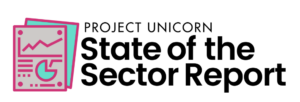Dear Novice Teacher, Let’s Talk Data

By: Dr. Justin Aglio and Anna Myers
“Data is at the heart of ensuring that every student has a learning experience that recognizes their individual needs.” (Paige Kowalski)
Data is being generated at exponential rates and there is no sign of slowing down. More data will be created faster than ever before! For example, Google now processes over 40,000 search queries every second on average, which translates into over 3.5 billion searches per day and 1.2 trillion searches per year worldwide, but these numbers will change every day and therefore make this blog irrelevant.
The focus of this blog is to help all educators, specifically novice teachers, understand the importance and significance of data in education. Most of the time teachers are focused on teaching content – making sure the students master the content of the material for a test rather than focusing on understanding the content and big ideas. Data helps teachers switch the focus from teaching content to teaching for understanding. When teachers are given tools through data, the student masters the content of the lesson in conjunction with the skills needed to recall and utilize the material in everyday life. According to Dr. John F. Pane, a senior scientist at the RAND Corporation, there are four reasons why data is crucial for personal learning in the classroom:
1. With data, learning is individualized
Every student is different and every student needs to learn at their own pace and utilize strategies best suited for them. Personal data helps educators understand where to start and how to enable students to reach their potential.
2. With data, learning continues outside the classroom
When students and families discover the best way the students learns, they can personalize the learning. And outside the classroom they are more likely to incorporate that method into normal day to day activates and further learning.
3. With data, students are partners in their own learning
Data helps students understand themselves better. They understand how to acquire a deeper understanding of the materials. They are in charge of their own education. They choose how they want to learn.
4. With data, learning is about mastery, not the time spent in class
Data is about exploring and learning. It is collecting information on how the student best learns. Time spent inside a classroom is not always well spent on learning.
Mark Holley simplified the importance of data by stating, “When teachers use data to drive their decisions and plans, they are able to respond to problems more effectively, construct new teaching methods, and advance skill sets faster.” As novice teachers get ready to step into their own classroom, data will be embedded in a variety of ways. That variety will vary from district-to-district. At first, it may seem overwhelming, and teachers may not know where to begin or end; however, at its core, teachers will soon realize that data is essential. Data will help target areas on growth and need, provide students a personalized education, create meaningful assessments, and create relevant and rigorous goals.
Data is information collected for use and the success of data in education will hinge by the collection of a team and not individuals. This collection is by compiled colleagues, parents, administration, coaches, and students. Every student is different and learns at different levels. Each student is special and unique in how they learn. Data helps the student understand themselves better. It is so important for students to self-reflect on their own learning. This motivates students when they see their data progress. Data helps them see their progress in real time. The student becomes more focused on achieving and progressing. Their focus becomes shifted to growing and seeing their progress. Students are able to show their work through the data and also tell the teacher exactly why they are confused or explain their question in detail. Knowing that they have a say in how they learn helps them feel important. It is their education, and they should have a say in how they learn.
If you are a novice teacher ready to take on the world, below are a few resources to help get you started:
- 6 Hallmarks to Building Data Culture
- Making “It’s All About the Data” a Reality in Education
- Three Ongoing Trends in Education Data
Anna Myers is a senior studying Elementary Education (PreK-4) at California University of Pennsylvania. She aspires to make a change in the world of education by starting at the root of children’s learning experiences.
Stay in-the-know with innovations in learning by signing up for the weekly Smart Update.








0 Comments
Leave a Comment
Your email address will not be published. All fields are required.